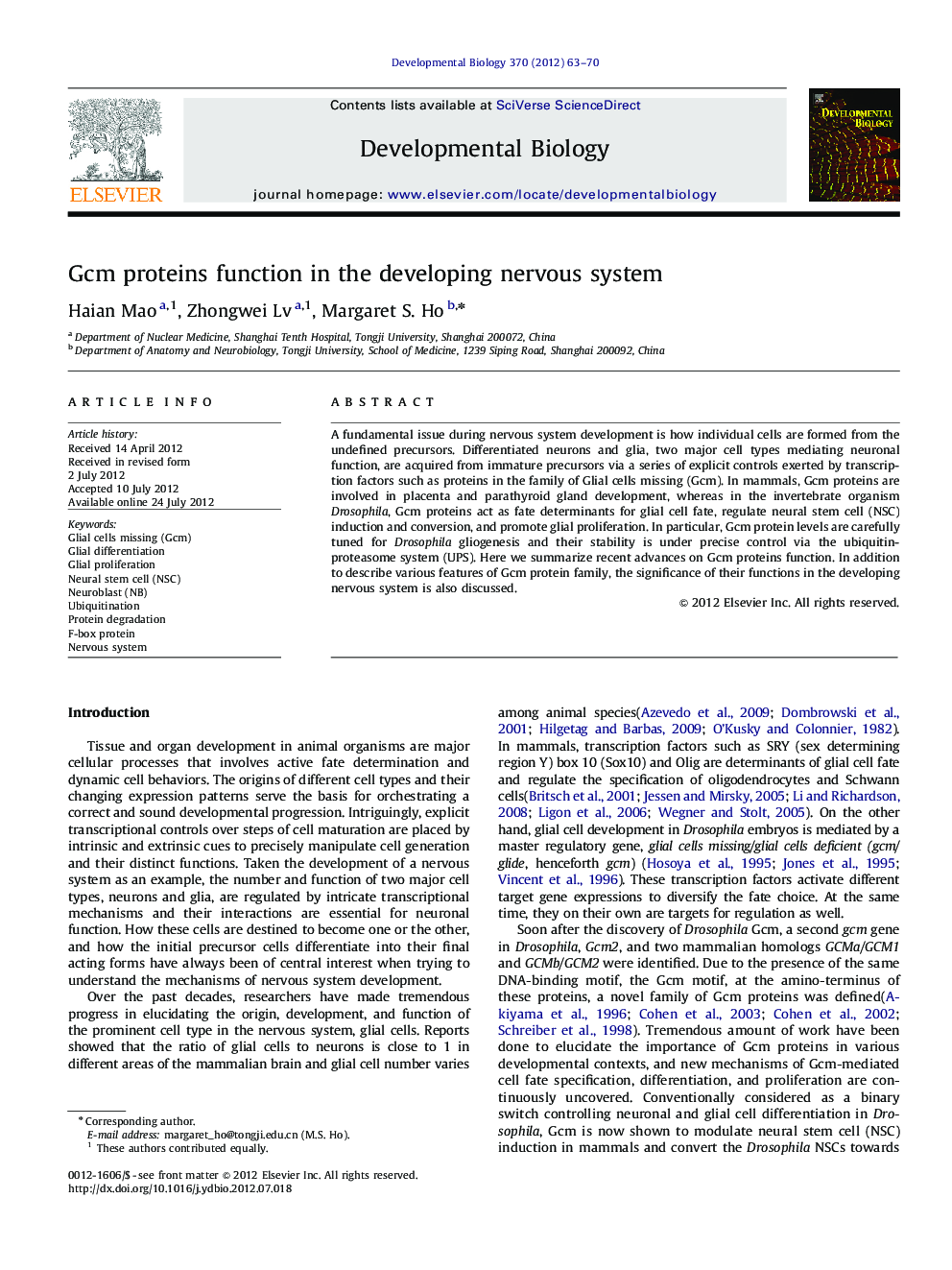| Article ID | Journal | Published Year | Pages | File Type |
|---|---|---|---|---|
| 2173283 | Developmental Biology | 2012 | 8 Pages |
A fundamental issue during nervous system development is how individual cells are formed from the undefined precursors. Differentiated neurons and glia, two major cell types mediating neuronal function, are acquired from immature precursors via a series of explicit controls exerted by transcription factors such as proteins in the family of Glial cells missing (Gcm). In mammals, Gcm proteins are involved in placenta and parathyroid gland development, whereas in the invertebrate organism Drosophila, Gcm proteins act as fate determinants for glial cell fate, regulate neural stem cell (NSC) induction and conversion, and promote glial proliferation. In particular, Gcm protein levels are carefully tuned for Drosophila gliogenesis and their stability is under precise control via the ubiquitin-proteasome system (UPS). Here we summarize recent advances on Gcm proteins function. In addition to describe various features of Gcm protein family, the significance of their functions in the developing nervous system is also discussed.
► Gcm proteins are transcription factors specifying developmental fates. ► Drosophila Gcm regulates embryonic and postembryonic glial differentiation. ► Drosophila Gcm undergoes F-box proteins-mediated ubiquitination and degradation. ► Drosophila Gcm protein modulates glial proliferation via intermediate progenitors. ► Gcm proteins regulate neural stem cell (NSC) induction and conversion.
